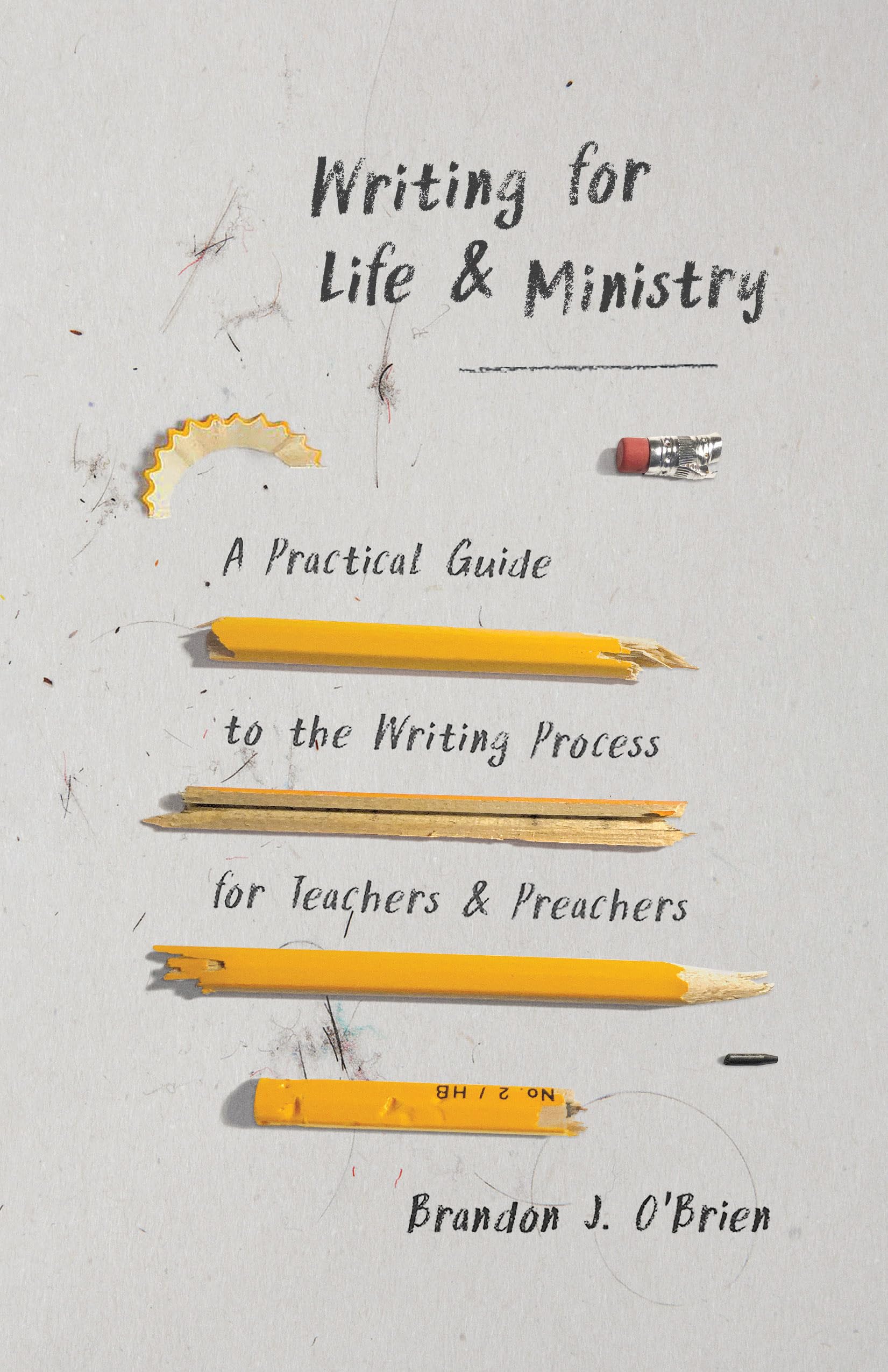

Full description not available
D**A
Helpful for those needing incremental progress in the middle of a busy life.
I’m honesty only partly through the book because my biggest obstacle is time (mom of three little kids) but that’s exactly what I love about this book!The short, yet thoughtful chapters are manageable on a tight schedule. The exercises in each chapter allow for written records of both brainstorming and practice. With Brandon’s help, I’m able to make some tangible forward progress instead of just unrecorded thoughts in my head.I highly recommend this book to any person who wants to write, but finds the necessities of everyday life an obstacle.
A**K
Includes Great Assignments to Help Writers
A graduate of Trinity Evangelical Divinity School, O'Brien currently works with Timothy Keller to coordinate various ministry projects. From his experiences, both in ministry and in writing, the author is able to bring quite a bit of information together for readers so that they may become better, more confident writers. This short book pulls together quite a bit of information to offer an introduction for anyone who has to do some sort of writing (even those communicating with just their church body through newsletters, letters, etc.).After a short introduction, the author has divided this book into two parts: Part One-The Writer & the Reader; Part Two-The Process (which he simply defines as plan, draft, and revise). Brandon O'Brien's treatment of the relationship between the reader and writer is one of the most profound I've seen on the topic. He offers some interesting insights and creative helps that writers will find useful. His treatment of the writing process is pretty straightforward and with the exception of a few points, not much beyond what most people receive in a basic high school English or writing class.An additional strength of this book comes from the activities at the end of each chapter. The author has put together a list of tasks to help readers define what to write about, whom they should write to, and how to do it. These helps are beneficial to any reader.My biggest frustration is the author's lack of acknowledgment of God. The author hammers the point that writers should first write for themselves and then write for others. Yet, apart from a minor quote, he does not exhort his readers to write for God. Furthermore, despite the title, most of the information is pretty general and he does little to connect the writing process directly to the ministry. As a Christian writer who chose to write to other Christians, he missed an opportunity here.Overall, Writing for Life and Ministry asserts itself as a good introductory book for the Christian writer. It does not supplant the need for such classics like those written by William Zinsser and E.B. White. At the very least, many writers would benefit from the exercises the author included.Disclaimer: I received a copy of this book from the publisher, but this review was in no way influenced by the publisher, author, or anyone else associated with this book.
C**E
Simple to read!
Great information and easy to follow step by step practical guide for writers that want out of the box information on how to improve.
D**E
Help and Encouragement for Writers
Pastors and Christian leaders must write – whether they like it or not. Ministry involves the communication, dissemination, and proclamation of truth. Writing is one of the important vehicles that God uses to advance his kingdom purposes.Brandon J. O’Brien offers a timely guide to help Christian leaders strengthen their writing ministries. His book Writing for Life & Ministry is a short, readable guide that instructs, encourages, and equips a new generation of leaders.Part 1: The Writer and the ReaderThe author establishes the crucial boundaries of writing in part 1. Christian leaders must understand that “writing is fundamentally about two human beings in a relationship: the writer and reader.” He encourages Christian leaders to dig deep and evaluate their motives for writing and the ultimate aim they seek for their readers.O’Brien challenges ministry leaders to write for themselves. Far from being an egotistical exercise, this admonition is grounded deeply in the gospel with the goal of glorifying God through the vehicle of writing. “Truly great writing,” says the author, “usually emerges from your passion, knowledge, and experience.” With this in mind, writing because of vital aspect of ministry.Finally, ministry leaders are encouraged to figure out who their audience is. In the end, writing must serve and benefit the reader. Writing must not intentionally offend. It must take into account who the readers are and account for their unique needs. Tones of grace and mercy are essential.Part 2: The ProcessThe second half of the book contains the “nuts and bolts” for aspiring writers. The author presents a planning model that includes brainstorming, researching, and outlining. Chapters are included with a wealth of information for each of these areas. Writers are challenged to move through a step-by-step process that fosters organization, creativity, and effectiveness.Revising is a key part of the writing process. This step is vitally important, according to O’Brien. He cites William Zinsser who adds, “Rewriting is the essence of writing.”SummaryWriting for Life & Ministry is different than other books on this subject. This book has heart and soul. It not only educates; it inspires. Several exercises are included to help writers put the suggested content to good use.O’Brien includes several recommended resources that are within his grasp and help his writing process. Writing for Life & Ministry will be one of the books that will always have within an arms reach as I continue my writing endeavors.I received this book free from the publisher. I was not required to write a positive review.
TrustPilot
1天前
2 周前